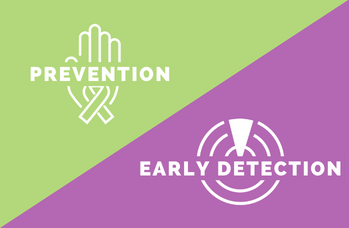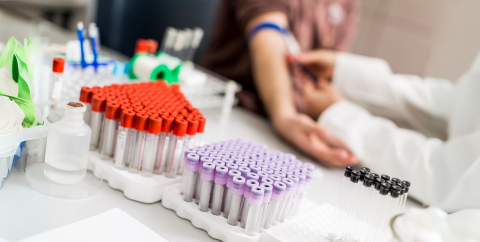Prevention, Early Detection Key to Reducing Colon Cancer
02 February, 2014
“We cannot treat our way out of the cancer problem…More commitment to prevention and early detection is desperately needed in order to complement improved treatments and address the alarming rise in cancer burden globally.” – Dr. Christopher Wild, Director of International Agency for Research on Cancer
In the United States the reduction of cancer mortality through cancer prevention can be a reality. In the case of colon cancer, prevention goes hand in hand with early detection thanks to colonoscopy which can not only detect pre-cancerous polyps but remove them thus preventing a cancer. In fact, the strategy of colonoscopy every 10 years is estimated to decrease risk of death from colorectal cancer by up to 70% or more.
Aside from prevention through screening tests, there are several ways to lower the risk of colon cancer through basic lifestyle changes. Here’s a look at what you can do to reduce your risk:
Reduce your alcohol use. Solid evidence from observational studies has linked excessive alcohol use with increased risk of colorectal cancer. Excessive alcohol use is defined as 5 or more drinks on one occasion or 15 or more drinks on average per week for men. For women it is 4 or more drinks on one occasion or 8 or more drinks on average per week. Some studies suggest that as few as 3 alcoholic drinks per day can increase risk of colon cancer.
Cut out smoking. Many studies of colorectal cancer find an elevated risk of incidence and death from colorectal cancer for smokers. The recurrence of pre-cancerous or cancerous polyps is also higher for smokers than non-smokers.
Maintain a healthy weight. If you’re obese or overweight, work with a physician or wellness expert to lose weight. Some studies have linked increased risk for colorectal cancer with a BMI great than 29.
Incorporate physical activity into your daily routine and you could actually decrease your risk of colon cancer. That could include taking a daily walk, riding a bike, or even vigorous house cleaning.
Add more fruits and vegetables to your diet. Some studies have shown that diets higher in fat, meat and calories is linked to an increased risk of colorectal cancer. Other studies have not shown the correlation. However most medical experts agree that adding fresh fruits and vegetables to the diet can increase overall health and wellness.
And if all else fails, get screened for colon cancer as recommended by your physician.
Sources: National Cancer Institute Colorectal Cancer Prevention (PDQ), CDC Vital Signs January 2014, IARC News Release on the Global Battle Against Cancer
You May Also Like

2025 Colorectal Cancer Data & Resources
02.25.2025
Colorectal cancer is the #2 cancer killer in Nevada by total numbers, only behind lung cancer.

2025 Colorectal Cancer Data & Resources
02.25.2025
Colorectal cancer is the #2 cancer killer in Nevada by total numbers, only behind lung cancer.

Questions linger after FDA approval of Shield blood test for colon cancer
10.21.2024
In July, the FDA approved the first blood test, called Shield, for primary screening of colon cancer in people at average risk.